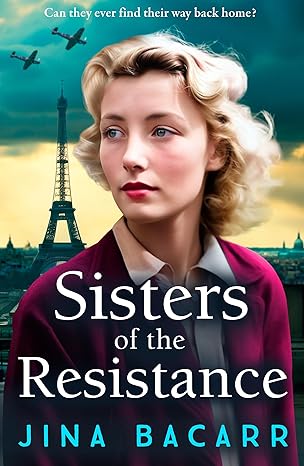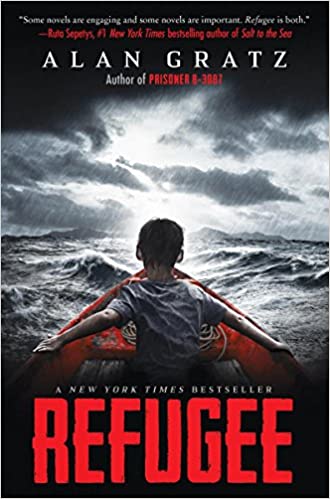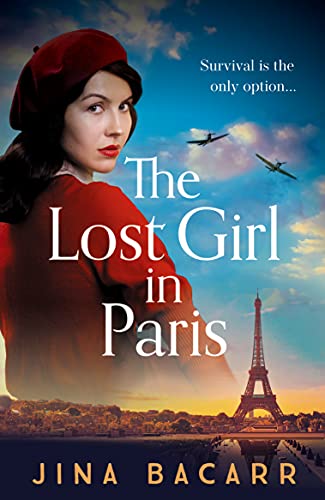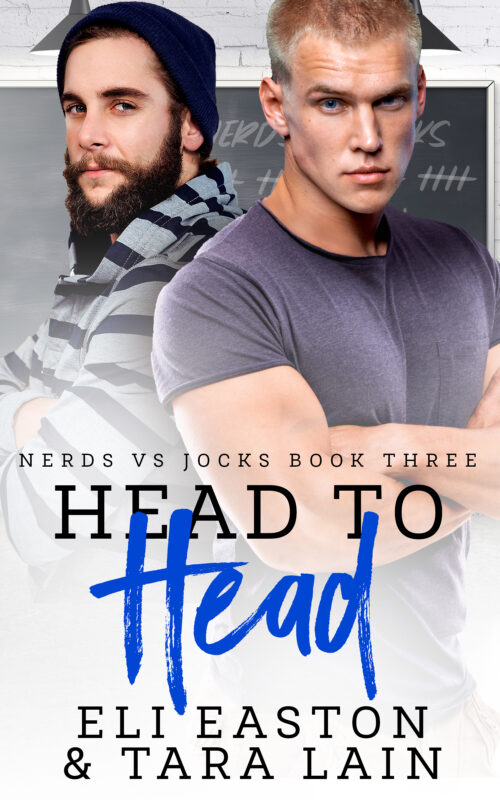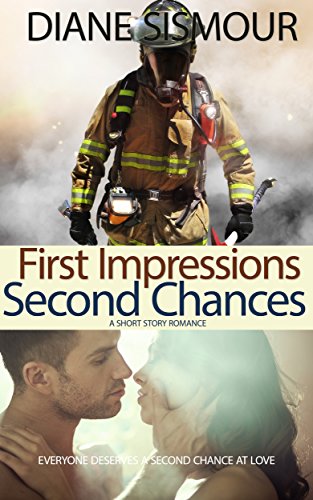OCCRWA October 2010 Online Class — A Body Disposal Primer for Writers with Jeanne P Adams
September 26, 2010 by A Slice of Orange in category Archives tagged as Online Class********** permission to forward **********
Hi everyone! Check out the exciting online classes offered by the
Orange County Chapter of RWA!
“Mauled Men, Drowned Dames and Crispy Critters: a Body Disposal Primer for Writers”
with Jeanne P. Adams
October 11 – November 6, 2010
Enrollment Information at http://www.occrwa.org/onlineclassOct10.html
COST: $20 for OCC members, $30 for non-members
If you have specific questions, email occrwaonlineclass@yahoo.com
ABOUT THE CLASS:
You’ve axed, shot or otherwise knocked off a key character in your latest book, now what? You have to do SOMETHING with the body! Even if the forensics, murder, or death aren’t central to the story, there is that annoying dead guy to dispose of. So, decisions, decisions. Is an autopsy necessary? A funeral and burial? Lots of plot possibilities, but the details!
Find out everything you ever wanted to know about the pernicious particulars of body disposal and how to use minutiae of death to throw your characters together or drive them apart. Learn about embalming, vaults, cremation, reconstructive cosmetics, coroner’s reports, death certificates and more at this get-the-basics research track online class.
ABOUT THE INSTRUCTOR:
Jeanne P. Adams knows a thing or two about getting rid of a body, in reality as well as in books…her third book, Deadly Little Secrets (Zebra, Sept. 2010) is already being hailed as “One of the best Suspense Books of the Year!†by Romantic Times. It’s also a TOP PICK and garnered 4.5 stars, as did her second book Dark and Deadly. Her award winning debut, Dark and Dangerous, was also an RT TOP PICK.
In addition, Jeanne is a multi-published non-fiction writer and consultant with credits in magazines such as Forbes and Nature. She worked in the funeral business, both for a cemetery and several funeral homes, for twelve years. In her reading, she’s winced over a variety of mistakes dealing with the story’s dead guy (or gal) which led to this class!
Enrollment Information at http://www.occrwa.org/onlineclassOct10.html
COST: $20 for OCC members, $30 for non-members
Coming in November 2010–
“The Tiny Art of Elevator Pitches: How to Craft Them & How to Use Themâ€
with Carrie Lofty
November 15 – December 11, 2010
If you’ve ever considered attending a conference, you’ve probably heard the term “elevator pitch.†It’s nothing more than a bare-bones summary of your novel. But reducing tens of thousands of words down to 30 or less can be difficult, daunting, and confusing. What to leave in? What to ignore? How to give it punch and drama? Instructor Carrie Lofty will share the elevator pitches that got her in the door, as well as her techniques for making them both concise and effective.
Want to be notified personally two weeks before each class? Be sure you’re signed up for our Online Class Notices Yahoo Group!
Sign up at the bottom of http://www.occrwa.org/onlineclasses.html
or send a blank email to OCCRWAOnlineClassNotices-subscribe@yahoogroups.com
********** permission to forward **********
e-maginings: Read A Banned Book
September 16, 2010 by A Slice of Orange in category Archives tagged as banned books week, challenged books, e-maginings Putting on my librarian hat to remind everyone that Banned Books Week is coming soon: September 25-October 2, 2010
Putting on my librarian hat to remind everyone that Banned Books Week is coming soon: September 25-October 2, 2010
Sponsored by the American Library Association, Banned Books Week is “an annual event celebrating the freedom to read and the importance of the First Amendment”. Over the years, many books have been banned or challenged, i.e. attempts have been made to pull the book from a school or public library. The reasons for banning or challenging a book vary, but most of the time it comes down to sexual content or bad language. The Satanic Verses was banned throughout the Muslim world for religious blasphemy. Many books that deal with homosexuality have been challenged.
The list of banned or challenged books is quite eclectic, ranging from classics like The Adventures of Huckleberry Finn (politically incorrect language) to The Catcher in the Rye (obscenity) to the Harry Potter series (magic and witchcraft – horrors!) to Tolkien’s The Lord of the Rings (satanic). That last one has me scratching my head.
Anyway, at the time of year, I often try to read a banned book. Because I’m currently judging two writing contests, my time is limited so I picked up a couple of challenged children’s books at the local library:
And Tango Makes Three
by Justin Richardson and Peter Parnell, illus. by Henry Cole
NY: Simon & Schuster Books for Young Readers, c. 2005
Summary:
At New York City’s Central Park Zoo, two male penguins fall in love and start a family by taking turns sitting on an abandoned egg until it hatches.
Walter the Farting Dog: Trouble at the Yard Sale
by William Kotzwinkle and Glenn Murray, illus. by Audrey Colman
Dutton Children’s Books, c. 2004
Summary: After being sold at the family’s yard sale, Walter is put to use blowing up balloons for a clown who is bent on robbing banks, but he escapes and becomes a hero.
I was hoping to find the original Walter the Farting Dog but it was checked out so I figured the sequel will do. Apparently it was challenged for, I don’t know, farting?
Have you read a banned book lately?
Linda McLaughlin
w/a Lyndi Lamont
http://flightsafancy.blogspot.com/
What is a Novel? by Jina Bacarr
September 11, 2010 by A Slice of Orange in category Archives tagged as author, bird, Confessions of a Podcast Goddess, Italian, Italy, Jina Bacarr, novels, perfume, scent, Venice, writingA novel is like my friend, Uccello.
Writing is a solitary profession and taking a break from sitting at my computer is important to me. I like to walk. Every day I walk through a park on my way to the beach, smelling the flowers, enjoying the shade of the trees and listening to the birds singing.
One bird in particular captured my attention. He doesn’t sing better than the others, he’s not prettier, and he doesn’t fly in a soaring pattern. But we’ve formed a bond, Uccello and me.
I call him “uccello” (bird in Italian) because he reminds me of the birds singing outside my hotel window in Venice. I fell in love with the magical city with all its sights and smells when I spent time in Italy speaking and performing about Body & Eros at La Biennale dance festival.
Watch a short clip of the view from my window in Venice, Italy.
Seeing Uccello every day takes me back to Venice and reminds me of the evocative perfume I inhaled there.
I learned to recognize Uccello from the other birds, little things about the charcoal grey bird that caught my eye. He has a little white belly that wiggles when he preens himself like a de’ Medici grand duke and his chirping is short and musical like breathy notes on a flute. He follows me through the park, flitting from one perch to another, poking his head around to see if I’m dallying.
I’ve gotten to know his idiosyncrasies, like how he chirps twice when he sees me, then how he likes to show me what path to take by flying in front of me. The park has many winding pathways and I look forward to seeing where he’ll lead me on my walk each day.
To me, a novel is like Uccello. Something about it attracts your eye–it could be the title or the cover–you get closer, open up the book and it takes you on a journey. As you follow its winding paths, you breathe in its uniqueness. That’s part of the fun for me. I like to inhale the scent of the story.
It’s not something you can smell in a physical way, but it evokes an odoriferous response in you that makes you aware of the scents the author has created in their world, whether it’s fragrant roses, the salty sea, cinnamon, oil, pine cones, or the smell of sex.
The next time you read a novel, think about what you smell. It may surprise you.
I’m off to see Uccello.
Want to come along? It’s easy.
Open a novel and join us.
Best,
Jina
The Blonde Samurai: “She embraced the way of the warrior. Two swords. Two loves.â€
Jina Bacarr is also the author of The Blonde Geisha ,Cleopatra’s Perfume, Naughty Paris, Tokyo Rendezvous, a Spice Brief, and Spies, Lies & Naked Thighs
visit my website: http://www.jinabacarr.com/
Let’s hear it for the heroines
September 8, 2010 by A Slice of Orange in category ArchivesLately I’ve been thinking—and talking and blogging—about romance novel heroines. Usually it’s heroes who take over the limelight in any discussion of characters. Dark hair or blond? Cop or sheikh? Cowboy or bad boy? We all have our preferences, and we’re not afraid to state ’em.
But when I read a romance, it’s just as important (well, almost) that I like the heroine. Love her, even. After all, she needs to be worthy of that fantastic hero, and I want to be sure she’ll make him as happy as he makes her. Which isn’t going to happen if she’s, say, whiny. Or selfish. Or dull.
There’s a theory that when you read a romance novel, you “become†the heroine. Subconsciously, you put yourself in her place, experience her trials and her delights. Which makes it all the more important for the heroine to be someone you like.
I like my heroines strong, but with a sweetness of character that reminds the hero just how churlish he’s being. A great heroine knows what she wants and is willing to work for it. Intelligent – very! Honest and principled, too (though she may at some stage have to fake an engagement, pretend her marriage of convenience is for real, or pose as the hero’s girlfriend…all in a day’s work for even the most honest heroine).
What I don’t want is a perfect heroine: never having a mean thought, always sacrificing ungrudgingly for others (if you’re going to sacrifice, it’s more realistic to begrudge it!), endlessly patient. As for the heroine who refuses to accept the gorgeous designer dress purchased for her by the super-rich hero…what’s that about? No, my kind of heroine is also a pragmatist…one who likes nice clothes even if she’s not always sure how to choose them.
So who are these non-paragons I love to read about?
Susan Elizabeth Phillips has written a few of my favorite heroines: Annabelle in MATCH ME IF YOU CAN, Daisy in KISS AN ANGEL and Jane in NOBODY’S BABY BUT MINE. I loved Maggie in Kristan Higgins’ CATCH OF THE DAY. Karina Bliss wrote a wonderful librarian in WHAT THE LIBRARIAN DID.
Becky Brandon nee Bloomwood (aka SHOPAHOLIC) is a heroine I loved more in the subsequent books than in the first one, but I’ve adored her through five books.
Georgette Heyer’s heroines deserve a special mention. She wrote so many delightful women (or girls). Warm and funny Arabella and Venetia in the eponymous novels, Mary in DEVIL’S CUB (feistier than the hero could ever have dreamed), wry and creative Hester in SPRIG MUSLIN, courageous Phoebe in SYLVESTER.
If you can recommend a great heroine whose story I can add to my To Be Read pile, I’d love to know!
When Opportunity Knocks, Answer the Door
August 28, 2010 by A Slice of Orange in category Archives“Everything comes to those who hustle while they wait.†–Thomas Edison
I got that quote in a writing workshop years ago and have it hanging on the wall above my desk. I think it really defines the business of being a writer.
Much of the writing business involves waiting. The wheels of publishing turn very slowly, and a writer who wants to be successful in publishing has to make the best of time while waiting for that response from the agent or editor or that contract or that check. Now you can hang out in front of the TV for the weeks it might take to get that call or that contract or that check—or you can use that time to make things happen in your career while you wait.
Becoming and staying published is partly about good writing, partly about determination, and partly about luck. Now a writer can learn her craft, and she can doggedly do her research about the market. That takes care of good writing and determination. But what about luck?
What some people call luck, I call opportunity. And opportunities abound for those who are watching for them. The trick is having the courage to jump on the chance when it comes around.
Chances to move your career forward happen every day, and I firmly believe that half of them come for the writer who does everything she can to make something happen. How do you do that? Put yourself in the way of potential opportunity whenever you can. Hustle while you wait!
Networking is one way to do this. Get to know people. The more contacts you make, the more chances you have of hearing the newest market news as soon as it hits the grapevine. Facebook, Twitter, writers meetings, email loops…there are tons of ways to network without going too far from home. Also, the more people you know, the more people you will get to meet as your friends introduce you to their friends.
Get involved with your chapter. Not only will you get to know other members, but holding a position on the board or a committee could put you in a position to meet visiting industry VIPs face-to-face. Great networking opportunity!
Enter contests. Contests are subjective, but there is always a chance that you might make the finals and have your manuscript end up in front of the agent or editor of your dreams. That’s the best case. Worst case scenario is that your work is read by two or more skilled judges who can provide valuable feedback. Sounds like a win-win situation to me!
Go to conferences. I can’t tell you how many people I have met at conferences over the years. My favorite thing to do is sit in the lobby at RWA and watch people go by. You’d be amazed how many people you can meet, or, in the case of a bestselling author or other industry professional, just get a look at. Recognizing someone’s face could prove valuable at a later time. I love meeting people!
A lot of writers attend conferences because of the editor/agent appointments. This is another kind of opportunity, one that you helped bring about because you paid the fee and went to the conference. At the appointment, you have about eight minutes to make the editor/agent fall in love with your concept and request to see the work. Here’s the thing about appointments: if your book isn’t done, don’t request an appointment.
The editors have a job to do filling their publishing schedules with the hottest works they can find, and the agents are looking for new clients whose work they think they can sell. So many times these people get excited about someone’s pitch and eagerly await the work, but it never arrives. Why? The book wasn’t done. Or the author got cold feet. Make sure when you request an appointment that you have something to sell, something that could be put in the mail as soon as you get home—something you intend to put in the mail when you get home. Be a professional and follow through with what you pitched.
Get involved in your own career. Go places, take classes, meet people. It’s the best way to make sure that when opportunity knocks, you’ll be waiting to open the door.
Affiliate Links
A Slice of Orange is an affiliate with some of the booksellers listed on this website, including Barnes & Nobel, Books A Million, iBooks, Kobo, and Smashwords. This means A Slice of Orange may earn a small advertising fee from sales made through the links used on this website. There are reminders of these affiliate links on the pages for individual books.
Search A Slice of Orange
Find a Column
Archives
Featured Books
SISTERS OF THE RESISTANCE
Now they must choose – save themselves, or fight the Nazis
More info →THE LOST GIRL IN PARIS
'I will never forget what the Nazi did to me. Never'
More info →HEAD TO HEAD
If these two don't kill each other, they might fall in love.
More info →FIRST IMPRESSIONS SECOND CHANGES
Everyone deserves a second change at love.
More info →Newsletter
Contributing Authors
Search A Slice of Orange
Find a Column
Archives
Authors in the Bookstore
- A. E. Decker
- A. J. Scudiere
- A.J. Sidransky
- Abby Collette
- Alanna Lucus
- Albert Marrin
- Alice Duncan
- Alina K. Field
- Alison Green Myers
- Andi Lawrencovna
- Andrew C Raiford
- Angela Pryce
- Aviva Vaughn
- Barbara Ankrum
- Bethlehem Writers Group, LLC
- Carol L. Wright
- Celeste Barclay
- Christina Alexandra
- Christopher D. Ochs
- Claire Davon
- Claire Naden
- Courtnee Turner Hoyle
- Courtney Annicchiarico
- D. Lieber
- Daniel V. Meier Jr.
- Debra Dixon
- Debra H. Goldstein
- Debra Holland
- Dee Ann Palmer
- Denise M. Colby
- Diane Benefiel
- Diane Sismour
- Dianna Sinovic
- DT Krippene
- E.B. Dawson
- Emilie Dallaire
- Emily Brightwell
- Emily PW Murphy
- Fae Rowen
- Faith L. Justice
- Frances Amati
- Geralyn Corcillo
- Glynnis Campbell
- Greg Jolley
- H. O. Charles
- Jaclyn Roché
- Jacqueline Diamond
- Janet Lynn and Will Zeilinger
- Jeff Baird
- Jenna Barwin
- Jenne Kern
- Jennifer D. Bokal
- Jennifer Lyon
- Jerome W. McFadden
- Jill Piscitello
- Jina Bacarr
- Jo A. Hiestand
- Jodi Bogert
- Jolina Petersheim
- Jonathan Maberry
- Joy Allyson
- Judy Duarte
- Justin Murphy
- Justine Davis
- Kat Martin
- Kidd Wadsworth
- Kitty Bucholtz
- Kristy Tate
- Larry Deibert
- Larry Hamilton
- Laura Drake
- Laurie Stevens
- Leslie Knowles
- Li-Ying Lundquist
- Linda Carroll-Bradd
- Linda Lappin
- Linda McLaughlin
- Linda O. Johnston
- Lisa Preston
- Lolo Paige
- Loran Holt
- Lyssa Kay Adams
- Madeline Ash
- Margarita Engle
- Marguerite Quantaine
- Marianne H. Donley
- Mary Castillo
- Maureen Klovers
- Megan Haskell
- Melanie Waterbury
- Melisa Rivero
- Melissa Chambers
- Melodie Winawer
- Meriam Wilhelm
- Mikel J. Wilson
- Mindy Neff
- Monica McCabe
- Nancy Brashear
- Neetu Malik
- Nikki Prince
- Once Upon Anthologies
- Paula Gail Benson
- Penny Reid
- Peter Barbour
- Priscilla Oliveras
- R. H. Kohno
- Rachel Hailey
- Ralph Hieb
- Ramcy Diek
- Ransom Stephens
- Rebecca Forster
- Renae Wrich
- Roxy Matthews
- Ryder Hunte Clancy
- Sally Paradysz
- Sheila Colón-Bagley
- Simone de Muñoz
- Sophie Barnes
- Susan Lynn Meyer
- Susan Squires
- T. D. Fox
- Tara C. Allred
- Tara Lain
- Tari Lynn Jewett
- Terri Osburn
- Tracy Reed
- Vera Jane Cook
- Vicki Crum
- Writing Something Romantic
Affiliate Links
A Slice of Orange is an affiliate with some of the booksellers listed on this website, including Barnes & Nobel, Books A Million, iBooks, Kobo, and Smashwords. This means A Slice of Orange may earn a small advertising fee from sales made through the links used on this website. There are reminders of these affiliate links on the pages for individual books.


